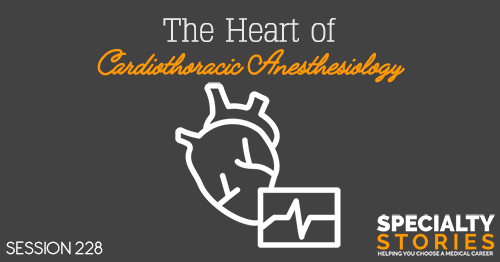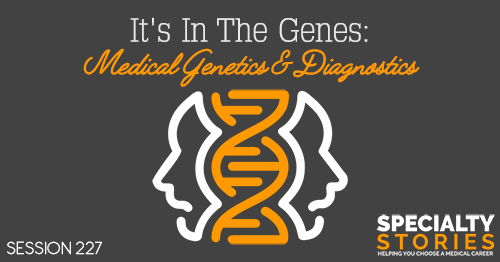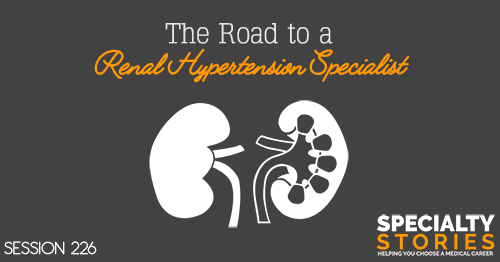Apple Podcasts | Google Podcasts
Session 177
Dr. Izzy Lowell is a community family physician with a special interest in trans medicine. In this episode, she busts myths about treating the trans community.
If you want to learn more about trans medicine, check out www.endocrine.org. For more podcast resources to help you along your journey to medical school and beyond, check out Meded Media.
Listen to this podcast episode with the player above, or keep reading for the highlights and takeaway points.
[01:09] Interest in Trans Medicine
Back in medical school, Izzy initially wanted to go into pathology because she loves histology and working with a microscope being an introverted person. So she did some rotations in pathology and she just didn’t love it. She now wasn’t sure where she wanted to go.
And it all came down to why she went to med school in the first place – to help people. At that time, she chose Family Medicine, as a specialty most in tune with public health and helping people on a broad scale. Then she still felt something wasn’t right although she thought public health was critically important to the field of medicine.
Izzy identifies as a lesbian and her gender identity as something complicated, but she uses she/her pronouns. And she has always been frustrated by the unfairness and poor representation in medicine.
'Over a decade ago, there was very little taught about LGBTQ medicine and that's improved in a lot of places now, but there's still room for improvement.'Click To TweetSeeing the gap in LGBTQ care in med school and in residency, Izzy suggested at Emory Family Medicine program, where she took a teaching job, to open a trans clinic. So she started the clinic, starting patients one day a week. Knowing how concerned many institutions are about profit, Izzy offered her services for free until the clinic becomes profitable.
It was at a residency program and her clinic had the lowest no-show rate and the best attendance of any session at the residency program. So it turned out there was a huge need. And from there, she expanded further.
[04:26] Why Do Transgender People Need Their Own Kind of Specialty?
Issy says this shouldn’t be a specialty field. If you’re transgender, non-binary, and you want hormone therapy, you don’t need to go to an endocrinologist. This is well within the confines of primary care. This is something that all primary care doctors could do. However, it’s just not taught. So usually, many primary care doctors don’t feel medically competent and it’s more out of not understanding it.
“The medicine is actually really simple. It's just a lot of lack of training.”Click To TweetThere are a lot of people who don’t think this is something that should be done. And that’s one thing. But also, people don’t know how to provide this care. And so, they’re afraid of doing the wrong thing.
Izzy personally doesn’t think there should be specialty clinics specifically for transgender people. And that it should be like anything else. But right now, that’s not the case.
Trans people are in danger of verbal abuse, or worse. It’s sometimes not truly not safe for a transgender person to seek medical care.
That’s why Queer Med exists in 10 states via virtual medicine so people can feel safe getting the care that they need. It’s not ideal. This shouldn’t be how trans people get their care. But it’s what they’ve got right now.
[07:17] The Biggest Myths or Misconceptions Around Transgender Medicine
The biggest one is probably that it’s complicated. It’s not complicated. You just take the person whose gender identity doesn’t match their sex assigned at birth. Then you increase whichever hormone they’re lacking, and you decrease the other one.
So if they’re assigned female at birth, and they want to be masculine, you give them testosterone. If they were assigned male at birth, and they want to be feminine, you give them estrogen. It’s almost as simple as that.
'The biggest myth for medical folks is that it's complicated, it's not.'Click To TweetAnother concern, especially regarding kids and teens, is that someone’s going to become a man or become a woman overnight. And it’s not doesn’t work that way. It’s like going through puberty again. It usually takes two or three years to see the full effect of hormones. It’s a very long process. So you can prescribe someone testosterone or estrogen. And if they like it and they feel better on that medicine, great.
Their whole goal is to make people feel better to heal and make people well. And if they don’t like it or it doesn’t suit them, they can just stop. And it takes a while to see permanent, irreversible changes. And people are very afraid of that. Izzy believes this is an overblown fear.
[08:45] Are There Cases of Regret?
Especially in teens, they start hormone therapy in teens as young as 13 years old, in some cases. And once in a while, a little under 12. Commonly, people will say, especially parents, how can they know that this is what they want since they’re talking about irreversible changes for someone who’s very young. And it’s true. This is a big undertaking for someone who’s 13 to think about.
But Izzy explains that when you’re 13, it’s not something that we really question beyond the very beginnings of puberty. And so, she takes great comfort in that.
That said, once in a while, you do have people that choose to “de-transition.” Although Izzy clarifies that she doesn’t really like the term because it implies going backward. And that you think something was incorrect in transitioning, in the first place.
Because for a lot of people, it’s more of a journey.
“Gender is very solidified. If someone's entered puberty or been through puberty, it's very unlikely that they're going to change their mind.”Click To TweetIn her practice, they have probably over 2,000 patients, and two people chose to come off hormone therapy out of those 2,000 in four years.
In both cases, the issue was that they hadn’t quite figured out that they were more of a non-binary identity than fully transgender. And neither one had any regret.
It wasn’t about regretting that they had done it in the first place. It was about a journey through realizing they were on more medicine than they should have been on. And now, they’re going to take less medicine or stop. And so, nobody regretted having done that.
And so, in totality, Izzy has had zero cases of regret and two cases of people who stopped taking hormone therapy.
[12:26] Traits That Make Someone a Good Family Practice Doc and a Transgender Medicine Physician
'There's no one trait that would make you a great family medicine doctor other than wanting to help people because it's a very hands-on specialty.'Click To TweetIzzy explains there are no perfect characteristics about being a family medicine doctor. In terms of transgender medicine, you have to be kind, open-minded, and welcoming to a patient population that has really struggled and had often pretty bad experiences with health care providers.
Being someone that can take the time to help mend that relationship between this person in the medical field is important. And again, they should have the desire to help people.
[14:13] A Transgender in the New Administration
With the new administration, President Biden nominated Dr. Levine, the first openly transgender federal official that potentially would be confirmed. When I asked Izzy whether this has a trickle-down effect on the medical world, she thinks it’s huge.
For her, it’s a symbolic way to say that this is an illustration that cares about everybody where everybody is equal.
Hopefully, there’ll be more of a focus on this because this is one of the many gaps in our healthcare system. 0.3% to 0.6% of people are transgender. That’s equivalent to 1.4 million, which is a huge number of people. And this is a big gap because we’re really not serving this population well, and it’s a big part of our country. It’s as common as Type I Diabetes, which is something where they have tons of funding and resources for. That being said, Izzy is optimistic about the new administration.
[15:59] Typical Day and Life Outside of the Hospital
Izzy takes care of her two kids in the morning then spends her afternoon in the office doing admin stuff like billing and scheduling. On some days, she does some backup shifts at the hospital. Then in the afternoons, it’s her designated time to fight with insurance companies. Sometimes, she works hospital shifts. There are certain days of the week that she’s open for shifts. Tuesday afternoons, she sees patients at Queer Med. Again, it just depends on the day and the variety of things.
Izzy is happy to still have a life outside of the hospital. When she first started Queer Med, she was overwhelmed with starting the business and the logistics part of it. So she was super busy during the first year of the business.
But now, things have got a lot of things on autopilot. She has no staff and she doesn’t have any administrators or medical assistants or nurses. So it’s just her and her three nurse practitioners whose only job is to see patients. And so, she does all the rest of the admin and business side of it and communicating with patients.
Her wife is also a doctor and has a regular nine-to-five job and she does transgender medicine. It’s just one thing among many other things she does so she has to be at work more than Izzy does. Plus, Izzy gets to run her business, which is not only fun, but also pays better than her teaching job.
[19:03] The Training Path
Although not ACGME-accredited, there are some organizations like the World Professional Association for Transgender Health where they have some training tracks. That said, Izzy doesn’t think the training path is really productive. It requires a ton of hours of shadowing and additional work. It’s so thorough and exhaustive that it’s counterproductive and becomes prohibitive for someone who’s in residency training or just out of residency.
For instance, she just taught her nurse practitioners who came to her without any background in transgender medicine. And she hired two out of three of them on the spot and taught them everything they needed to know.
'There are tons of gaps. You can't learn everything in med school and residency. You're always looking up stuff.'Click To TweetIzzy recommends using the UCSF guidelines as they have an incredible database that’s really easy to use.
[21:45] Message to Future Primary Care Physicians
Do simple things like asking what’s their preferred name and the gender pronouns they use. To someone who’s trans or nonbinary, especially if they don’t have a lot of support systems, that’s a huge cue that says you get them.
[24:11] Other Specialties They Work the Closest With
Izzy works the closest with endocrinology, therapists, social workers by training, typically, sometimes psychologists and psychiatrists. Through her Queer Med, she has a huge network of therapists across nine states who see a lot of transgender patients. And over time, they have gotten to know them and send patients over to them. So they have a great network of people to refer patients to.
“Even though being transgender isn't actually a medical problem, it is something that's important to treat appropriately and respectfully. And it can be really disruptive.”Click To TweetThe support system is huge. So for someone starting hormone therapy, say in a small town in Alabama or Mississippi, they may go through a lot of challenges that have nothing to do with a medical problem. And it may have more to do with the outside world reacting to them in their process of becoming their true self. So it’s really helpful to have that support, especially that it’s such a challenging process in the southern part of the country right now.
Additionally, she also works with a lot of surgeons who might be doing breast augmentation and “bottom surgery,” which is getting a lot less common nowadays.
[26:15] What She Wished She Knew Before
She wished she knew all the things about how to start a business because, in medical school, they don’t teach you that. There are tiny things that you just have to figure out as you get to them because those are things that no one else can explain to you.
[27:22] Most and Least Liked Things About Transgender Medicine
Izzy loves the fact she’s able to make people so happy. It literally is life-saving because she has had a lot of teens that come to them after suicide attempts. And this is usually on the time parents take them seriously and that’s when families start with them.
'At the end of the day, you're giving someone a potentially life-saving treatment that they're really excited about and they're so happy to see you.'Click To TweetMeanwhile, what she likes the least about her specialty is billing. A lot of their patients don’t have insurance, are underemployed, or in their 20s and don’t have a lot of money.
Her absolute least favorite thing has to do with insurance companies, but not directly, is the deductible. The patient thinks the care is covered. And then they get a bill for $300 bucks. So she has to go to the patient and say they owe them money they don’t have, even though it was covered. And that’s because the insurance company pulled this trick over on them that their deductible is $5,000 so they’re never going to meet it. So she has to tell the patients that.
[30:10] Major Changes in the Field
Being transgender and nonbinary has become more common. People feel more comfortable expressing and the next generation of doctors is going to be fine. The excitement and interest from the current med students and residents are extraordinary.
Izzy hopes they can get enough support to feel confident doing this to one patient at a time. And when that happens, Queer Med will go out of business. There will no longer be this need for this specialty telemedicine practice anymore. Because people will be able to get this in their hometown from their regular doctor who’s not a jerk.
[31:28] Final Words of Wisdom
Before you say you can’t do it, read a little bit about it. And then see if you can find anybody who’s doing it. Shadow with somebody. Again, it’s not super complicated.
Moreover, Family Medicine has so many different opportunities in it that you can do all sorts of different things and really choose a path within that broad specialty to meet your needs and to be exciting professionally.
Links:
SEARCH SITE
LISTEN FOR FREE












